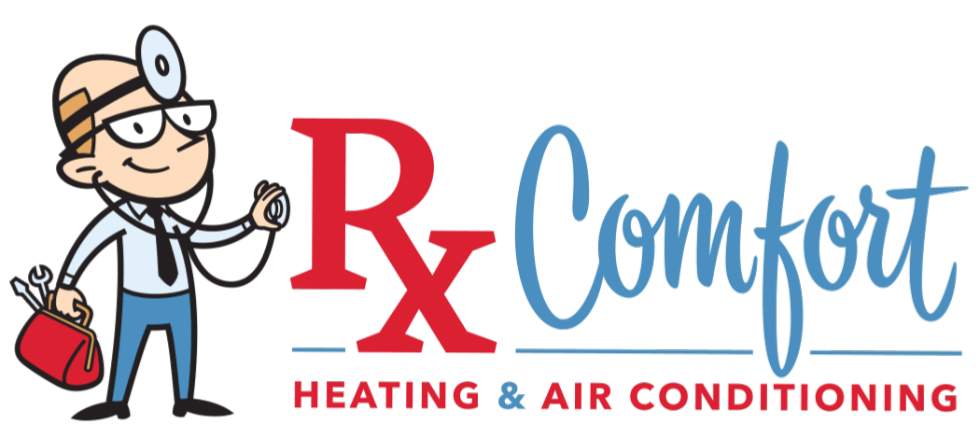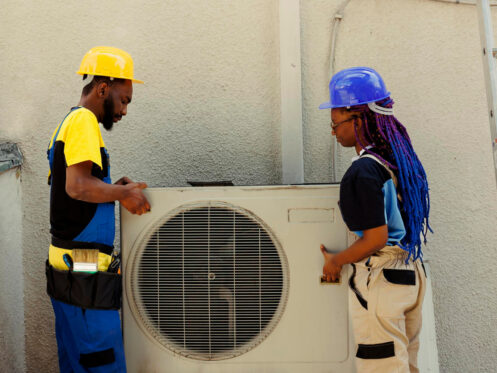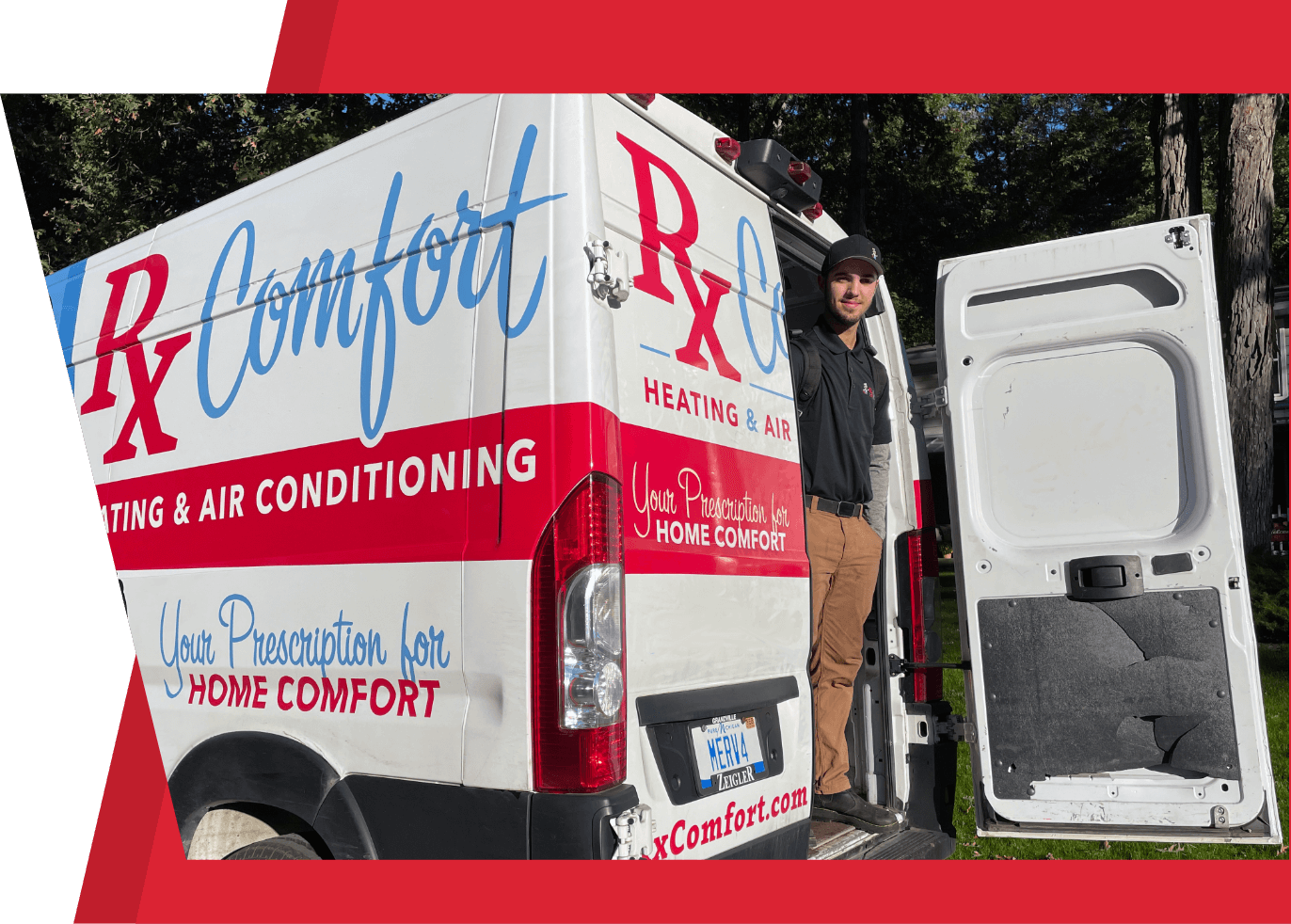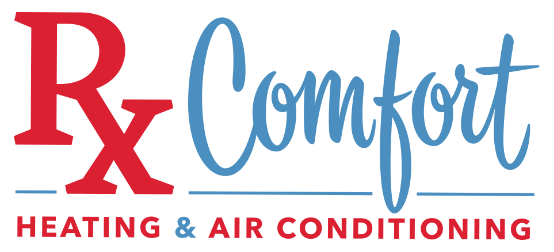As a premier heating and air conditioning contractor serving the greater Grand Rapids area, Rx Comfort Heating & Air Conditioning knows the importance of maintaining a comfortable home environment. To achieve this, homeowners need to be aware of the most common heating repair issues that can arise, impacting the performance of your heating system and ultimately compromising the warmth and coziness of your living space. By identifying and addressing these common issues promptly, you can ensure that your home remains comfortable no matter what challenges the colder months bring.
This comprehensive guide will discuss the top common heating repair issues homeowners may encounter, along with valuable insights on identifying these problems. Topics covered include malfunctioning thermostats, dirty and clogged filters, pilot light or ignition issues, inadequate heat production, and unusual noises. With a better understanding of these common issues, you can take proactive steps to keep your heating system in top condition and extend its lifespan, thereby ensuring the comfort of your home and your family throughout the year.
Join us as we delve into the world of heating repair, providing essential knowledge and practical tips to help you maintain a consistently comfortable home, and understand when it may be necessary to seek professional assistance for your heating system issues.
Malfunctioning Thermostats
One common issue that homeowners may encounter is having a malfunctioning thermostat. This can lead to incorrect temperature readings, causing your heating system to underheat or overheat your living spaces. Some signs that your thermostat may be malfunctioning include:
- Inconsistent Temperature Readings: If your thermostat’s readings do not match the actual room temperature, or if the readings seem to fluctuate frequently, it could indicate a problem with the thermostat’s sensor.
- Unresponsive Controls: If adjusting the thermostat’s settings does not result in any changes to your heating system’s output, it could suggest that the thermostat is not communicating properly with the heating unit.
- Frequent System Cycling: If your heating system turns on and off more frequently than usual, it can be a sign of an incorrectly calibrated thermostat or a faulty sensor.
If you suspect a thermostat issue, check its batteries and connections to ensure they are functioning correctly, and consider getting a professional from Rx Comfort Heating & Air Conditioning to calibrate or replace the thermostat if needed.
Dirty and Clogged Filters
Dirty and clogged filters can significantly impair your heating system’s performance, reducing airflow and forcing the unit to work harder to maintain the desired temperature. Regularly inspecting and replacing filters is essential to maintaining energy efficiency and preventing more significant issues such as system overheating or decreased air quality. Signs of a dirty or clogged filter include:
- Reduced Air Flow: If you feel minimal or no air coming from your vents, it may indicate that a dirty filter is restricting air circulation.
- Increased Dust and Allergens: A clogged filter can cause allergens and dust particles to recirculate in your home, potentially aggravating respiratory issues for occupants.
- Higher Energy Bills: A restricted airflow from a dirty filter forces your heating system to work harder, leading to increased energy consumption and higher utility bills.
We recommend checking your filters at least once a month, and cleaning or replacing them as needed to maintain adequate airflow.
Pilot Light or Ignition Issues
Pilot light or ignition issues may occur in both gas and electric heating systems, impacting the unit’s ability to produce heat. Be on the lookout for signs, such as:
- No Heat Production: An unlit pilot light or malfunctioning ignition system can prevent your heater from producing any heat, leaving your home cold despite thermostat settings.
- Delayed Ignition: If your heating system takes an unusually long to produce heat, it could be due to a faulty ignition system or a blocked pilot light.
- Yellow or Flickering Pilot Light: A steady blue flame is ideal in gas furnaces. A yellow or flickering pilot light can indicate incomplete combustion or a build-up of contaminants, posing potential safety hazards.
If you notice any signs of pilot light or ignition problems, reach out to a heating professional to diagnose and address the issue promptly.
Inadequate Heat Production
A heating system that does not produce enough heat to maintain a comfortable temperature can be frustrating, especially during colder months. Some potential causes of inadequate heat production include:
- Undersized Heating Unit: If your heating system is too small for your home’s square footage, it may struggle to maintain a comfortable temperature. Consult a heating professional to determine if your unit needs to be replaced with a larger one better suited for your home.
- Leaky Ductwork: Leaks in your ductwork can cause a significant loss of heated air, resulting in uneven heating and higher energy bills. A professional can conduct a thorough inspection to identify and repair any leaks in your duct system.
- Insufficient Insulation: Poor insulation can allow heat to escape from your home, forcing your heating system to work harder and consume more energy. An insulation upgrade can help improve your home’s heat retention and overall energy efficiency.
If you’re experiencing inadequate heat production, contact a heating professional to assess your system and recommend appropriate solutions.
Unusual Noises from Your Heating System
A heating system that emits unusual noises during operation can be alarming and may indicate various issues ranging from minor to severe. Some common noises and their potential causes include:
- Banging or Popping: These noises could be due to the expansion and contraction of the ductwork or an issue with improperly sized ducts.
- Squealing or Screeching: These sounds may indicate a worn or damaged blower motor belt or a lack of lubrication on moving parts.
- Rattling or Vibration: These noises can signify loose components, such as panels, ducts, or screws, that need tightening.
- Hissing or Whistling: These sounds may be a sign of leaky ductwork or clogged filters restricting airflow.
If you hear unusual noises from your heating system, we recommend contacting a heating professional to inspect and address the issue to prevent further damage and ensure a safe and comfortable living environment.
Ensuring Your Home’s Comfort and Heating System Efficiency
Understanding and identifying common heating repair issues is crucial for maintaining a comfortable and energy-efficient home. By staying vigilant for signs of thermostat malfunctions, dirty or clogged filters, pilot light or ignition issues, inadequate heat production, and unusual noises, you can address any problems early and minimize the impact on your home’s comfort and your heating system’s performance.
If you encounter any of the above issues or have concerns about your heating system, don’t hesitate to reach out to us at Rx Comfort Heating & Air Conditioning for comprehensive heating repair services. Our experienced team will promptly assess and address any heating problems you may have, helping to ensure the lasting effectiveness and efficiency of your home’s heating and air conditioning systems. Contact us today to schedule a service appointment and experience the peace of mind that comes with knowing your home’s comfort is in good hands!






